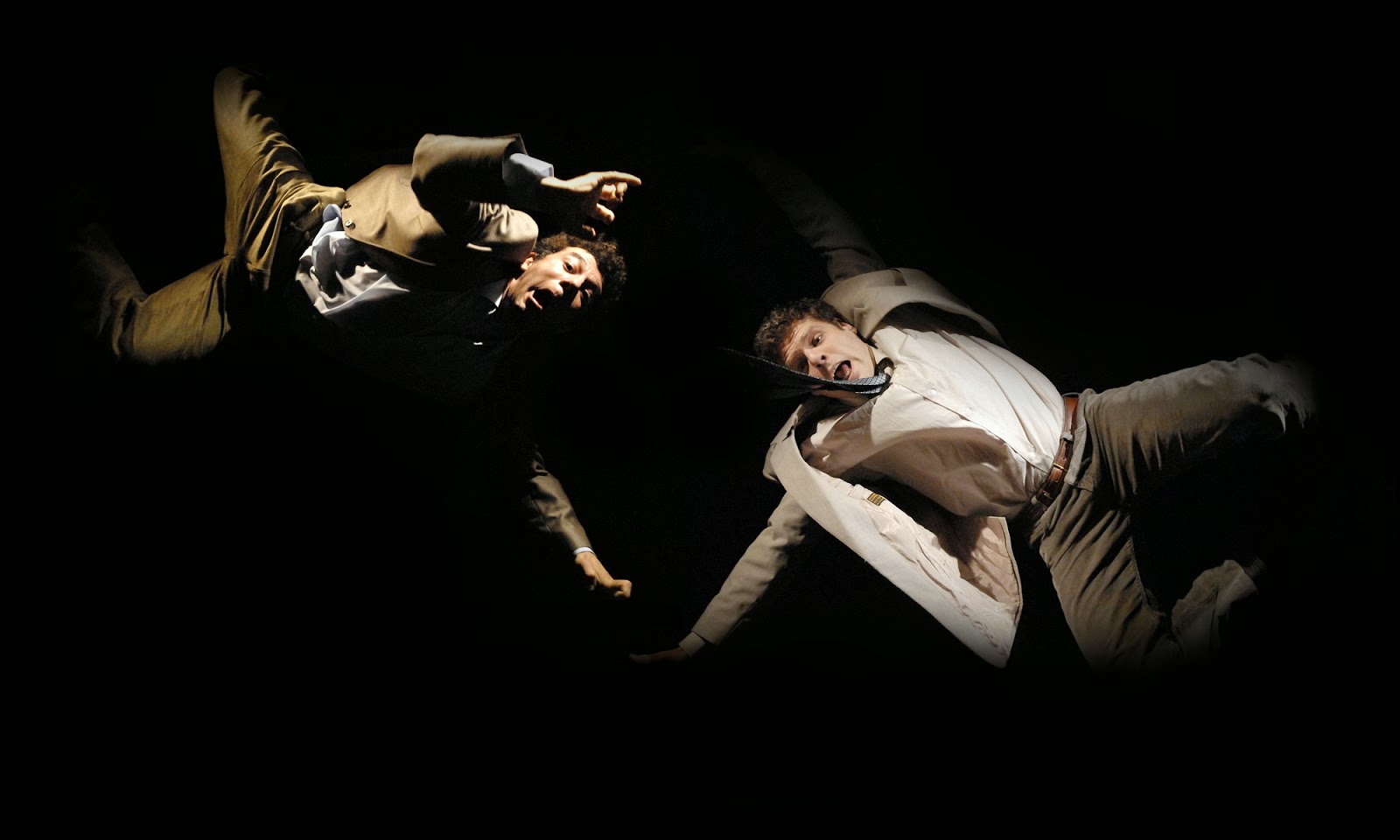 |
| Arab and Jew |
The final production was considered in both political and personal contexts, but Gecko were insistent that ‘any individual interpretation is valid’ (op cited, p 182). The title might hint at a discussion of the Middle East, but the intentions were more personal.
Having a show about Arabs and Jews had had a long gestation period... they already felt that they were... moving more towards the subject of 'brotherhood.' They wanted, they said, to explore their theatrical relationship (op cited, p170).
Jackie Smart details their devising process, paying attention both to the increased political considerations (op cited p182) and the nature of their collaboration. She expresses surprise that 'going for coffee' was a key strategy to help them overcome blocks (op cited p173), and notes that conversation, alongside the working out of a physical vocabulary, was at the centre of their preparations. The two men were engaging their very different cultural roots in a dialectic process that could find a shared expression on stage.
The particular process of Gecko - even in contemporary interviews, remaining director Lahav is eclectic when naming influences - moves between different stages in a manner that is dialectical. The casual 'going for coffee' is balanced against formal presentations of the show as a work in progress (versions appeared in Ipswich, Newbury, Cambridge and Bristol before reaching the Edinburgh British Council Showcase).
The conversation between Lahav and Nedjari is then introduced into a conversation with audiences: and, as Smart observes 'Gecko productions are in continual development' (op cited, p166) and 'reflection and renewal occur on a continuous basis throughout' (op cited p182).
Far from the agitprop of CAST or Fanshen’s script - Gecko are more likely to train in boxing than write text - the process of The Arab and The Jew still shares the central focus of an on-going dialogue within the company: the dialectic is now extended, through works in progress, to include the audience. The diffidence to the final interpretation of the company suggests that Baz Kershaw’s ‘irony’ allows contemporary devising companies to approach ‘a potentially dangerous emotional journey’ (op cited, p 172) and gain ‘confidence in being overtly political’ (op cited p182).

No comments:
Post a Comment